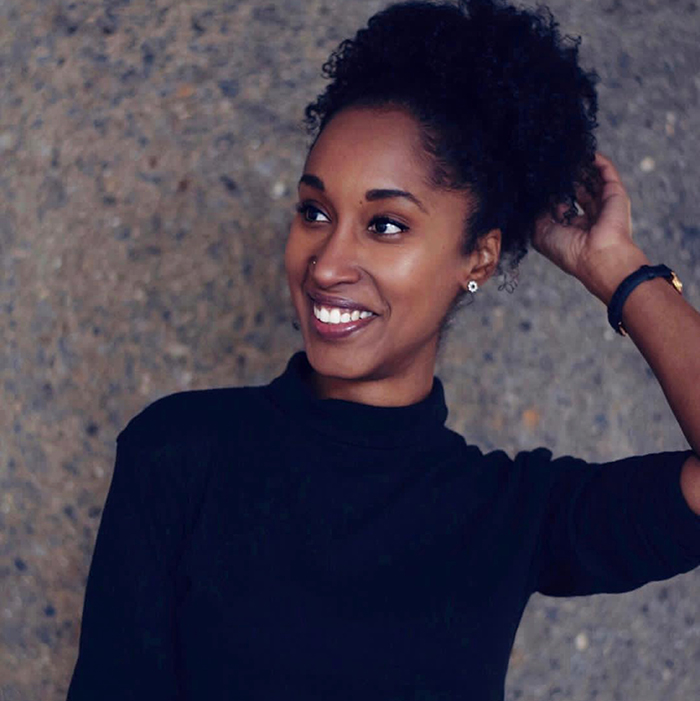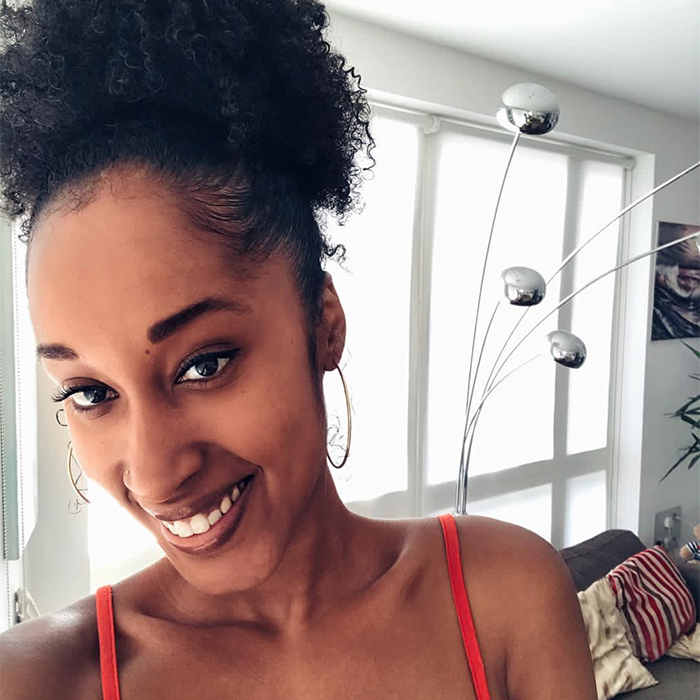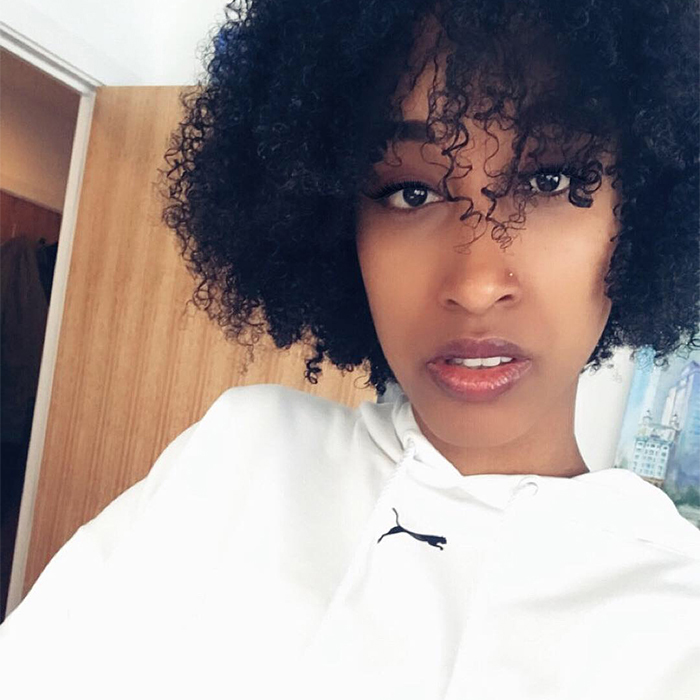This month, Naturally Curly and The Curl Talk Project are partnering to explore the link between natural hair and the notions of identity, femininity, diversity, race and representation.
Six ladies will share their experiences, from Germany to the UK these women reveal what it means to be a curly-haired woman in a society where beauty standards are otherwise. Discover their stories below.

Image Source: @axounn.p
You are from Martinique, tell us how curls are perceived over there?
Having straight hair has always been seen more positively in Martinique. It’s always been like that, but for the past few years I started to witness some change. Women have been experimenting more and have become proud natural hair advocates. I believe this is linked to the increased number of products that are now available, which help them during their journey and hair education.
What was it like growing up with curly hair?
I used to struggle to do my hair and always found it difficult and painful. I saw chemical relaxers as the best alternative for me, which is something that my mother eventually accepted to put on my hair. In addition to an easier styling process, having straight hair was also about looking like other black girls surrounding me and fitting in.
Do you feel there is a connection between femininity and how you feel about your hair?

Certainly. Hair contributes to our femininity whether it’s short, long, curly or straight. It’s like an accessory that needs constant nurturing and love.
Why is natural hair so strongly linked to identity?
Hair is a clear representation of who I am. I am a black woman and my curls are highlighting my cultural heritage.
What has your experience been like wearing your natural hair to work?
I work in finance which is a very strict and corporate environment. This means that I will generally go to work with a sleek bun. Not because I don’t embrace my natural hair in the workplace but I am aware that some codes are omnipresent within the corporate world. I am progressively thinking of letting my hair be in the office and when this will happen, people will have no choice than to embrace it as much as I do.
What has been the most challenging moments of your hair journey?
Transitioning was tough! Dealing with the different textures wasn’t easy, but I was really excited about the positive results I was expecting to see. Step by step I tried different products, styling techniques, and tried to stay positive even though seeing other girls going through an easier transitioning process was frustrating.
What advice would you give to women struggling to embrace their curls?
We should all be proud of our hair. In my opinion, the first step is to accept what we naturally have on our heads. Your hair is unique and shouldn’t be compared to anyone else’s. The idea is to experiment and accept that what works on others won’t necessarily work for you. You’ll go through bad phases and that’s ok. The more you try the more results you will get!

What are your holy grails?
I mainly use Cantu products in addition to As I am and Activilong. My favorite to define my curls is As I Am Coil Defining Jelly.
What does your natural hair represent?
Pride. The versatility linked to it is undeniable. Natural hair is an asset!
Read more stories of The Curl Talk Project here.
